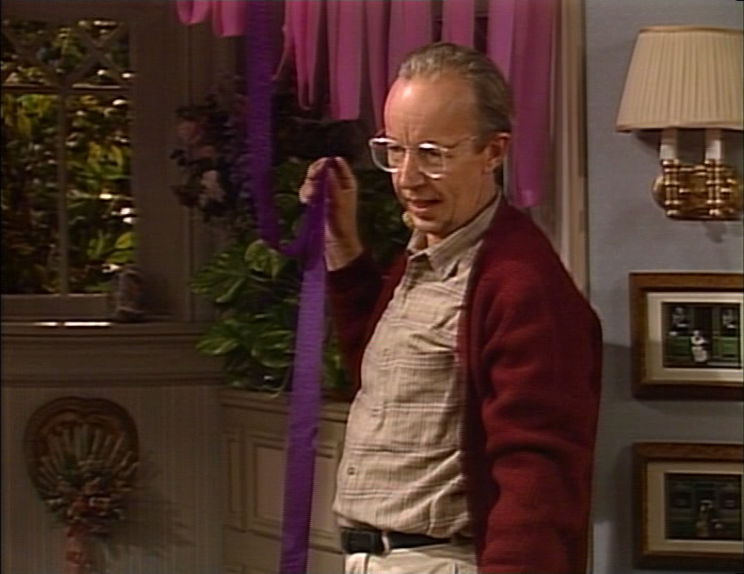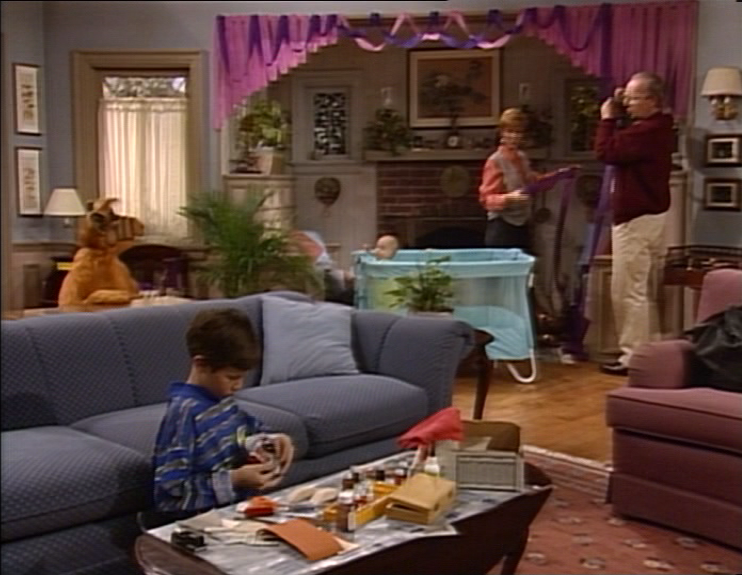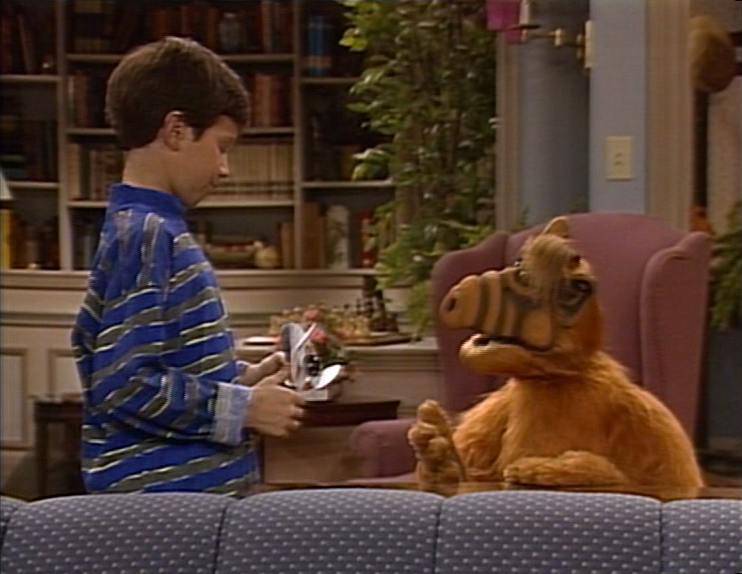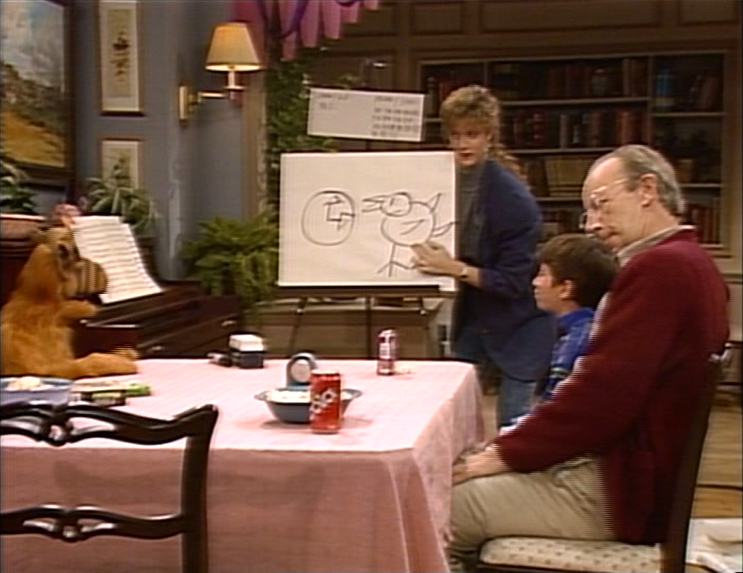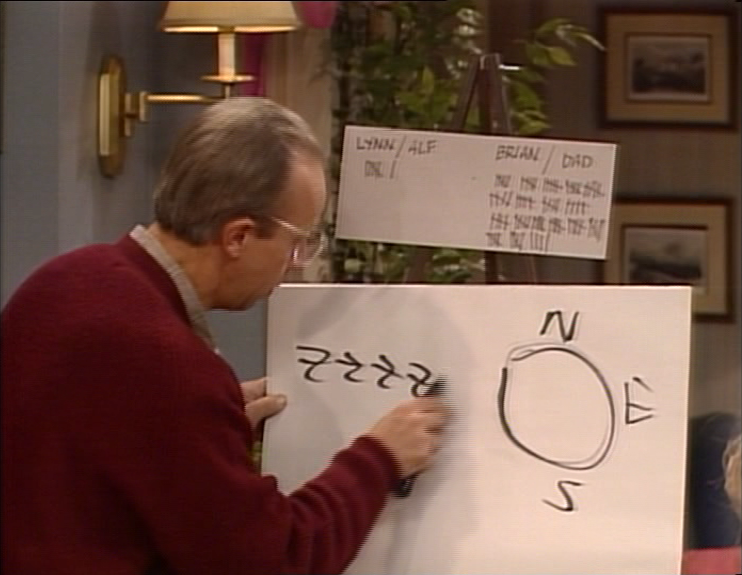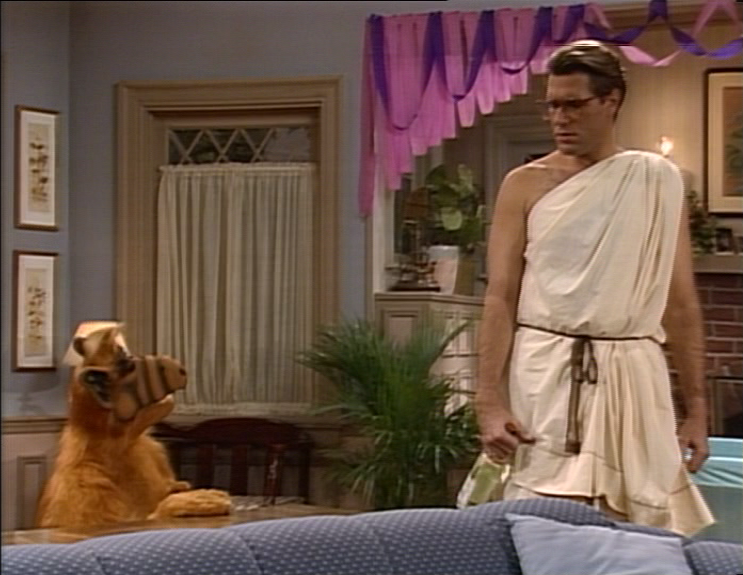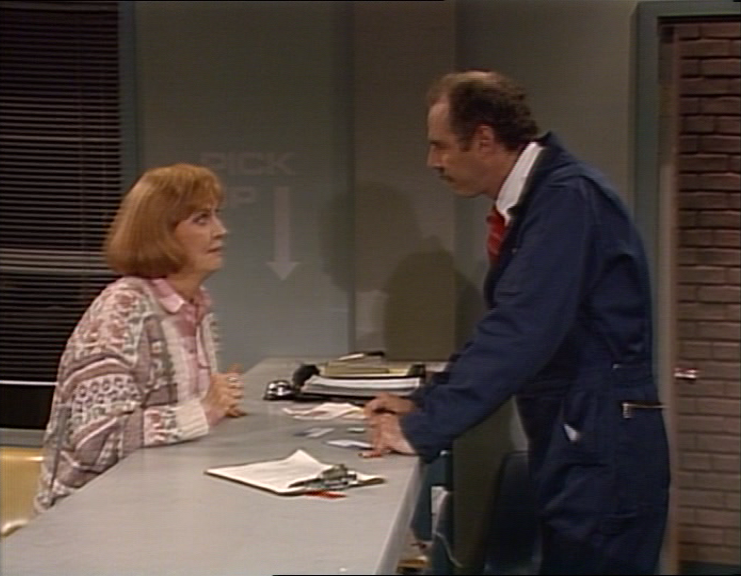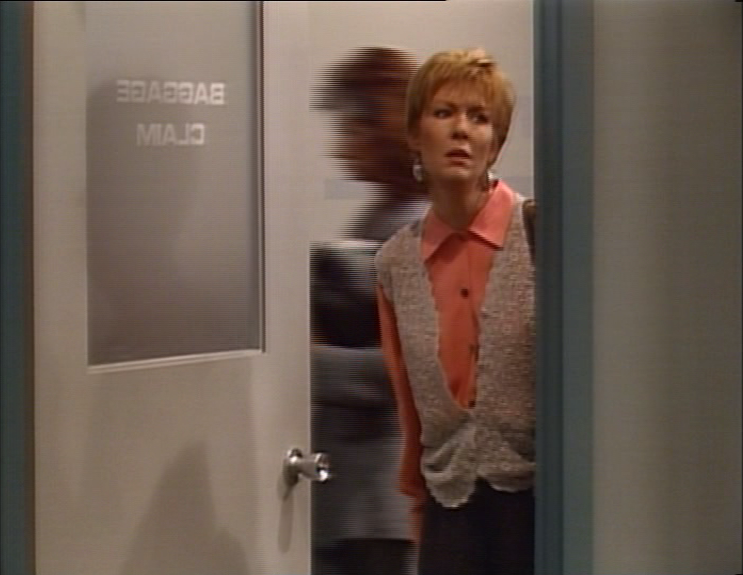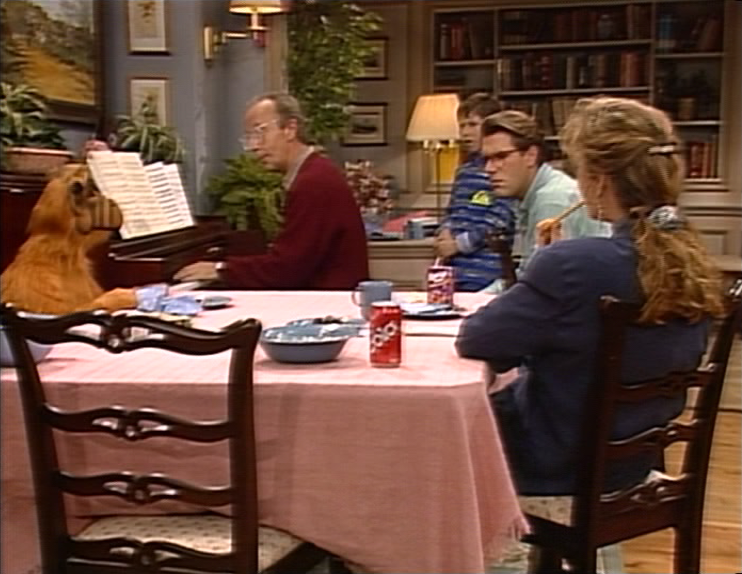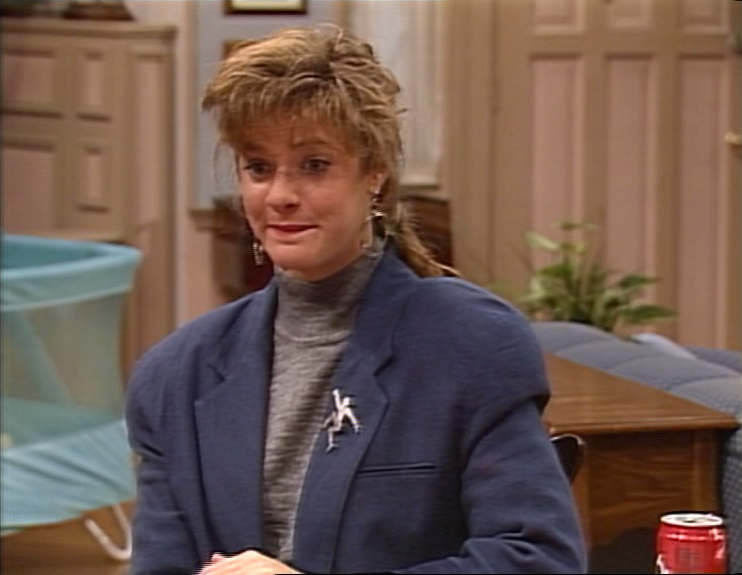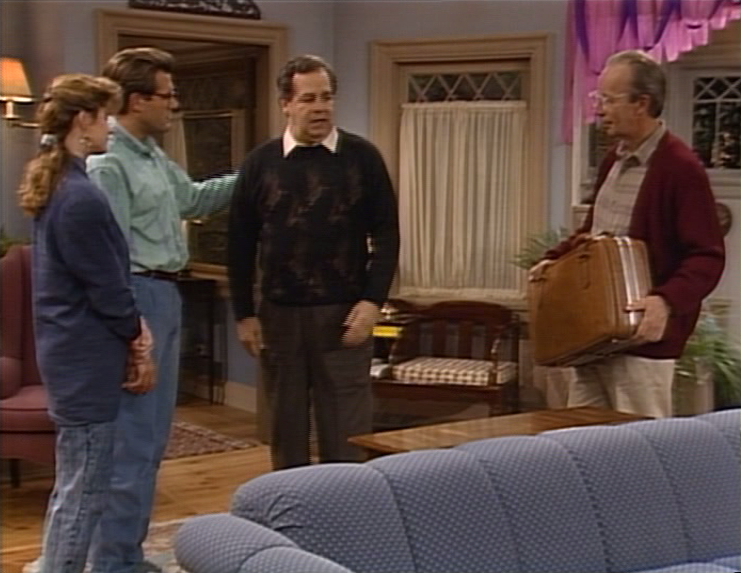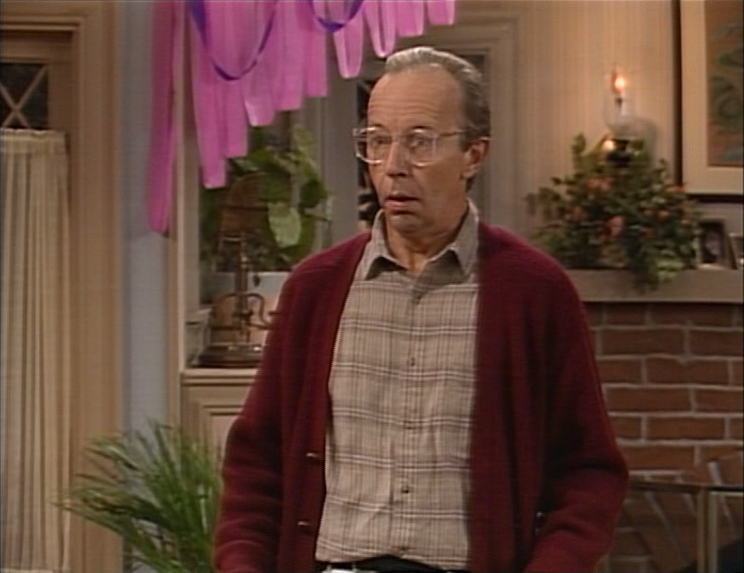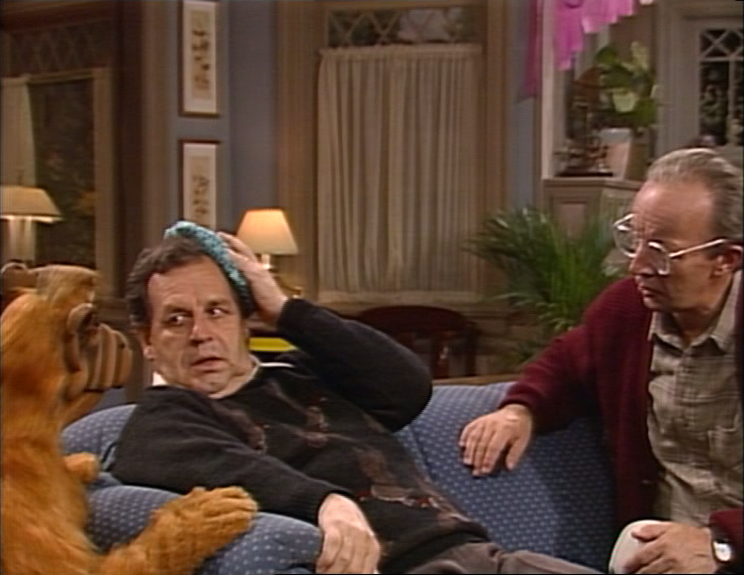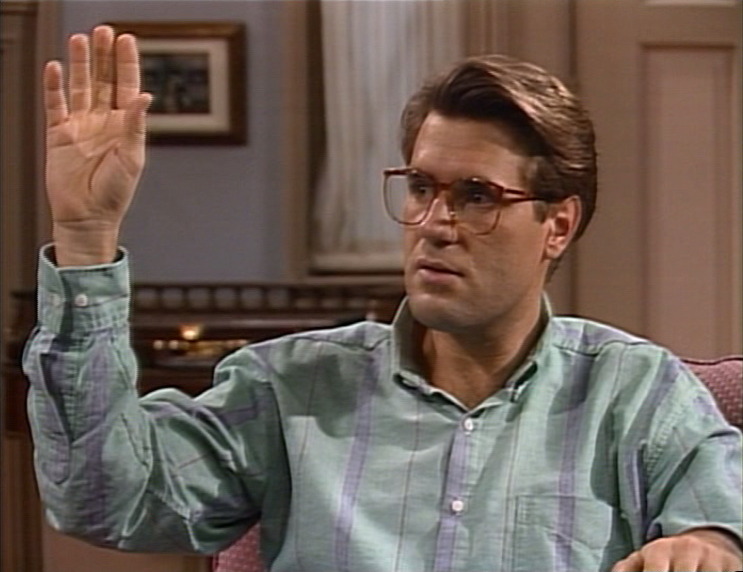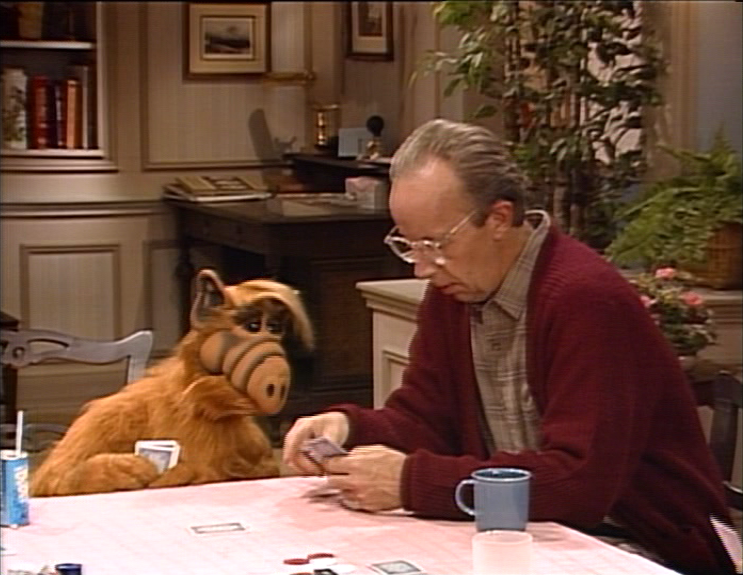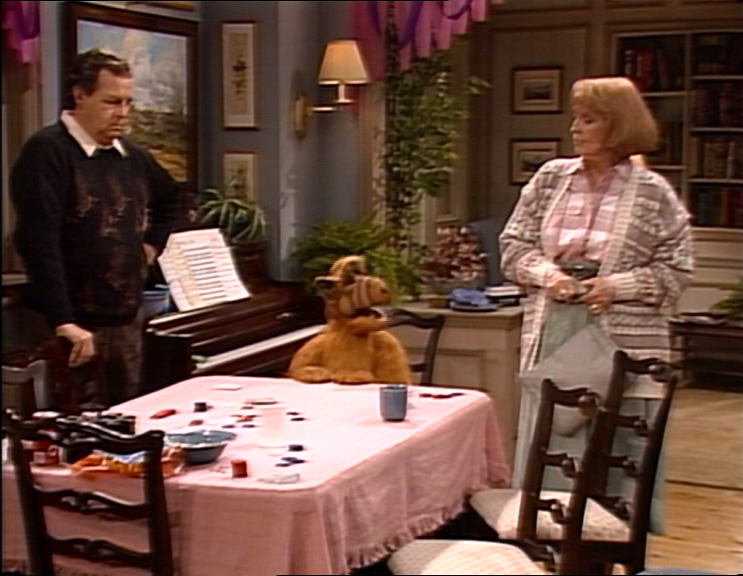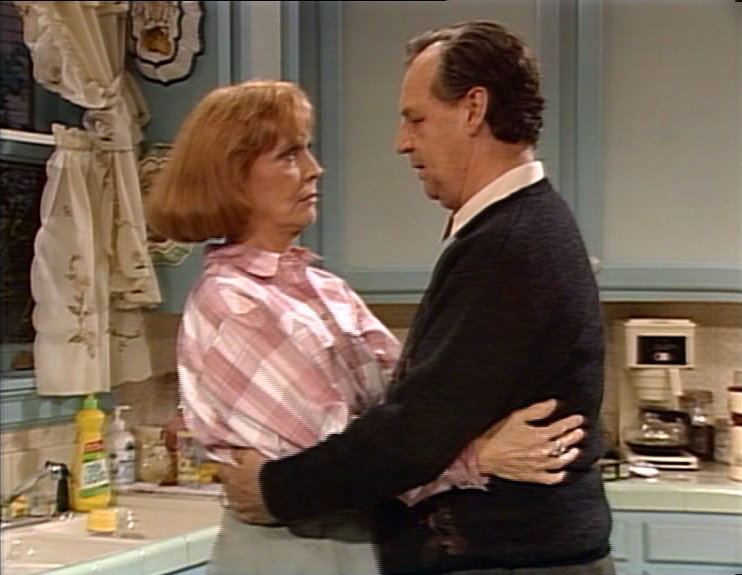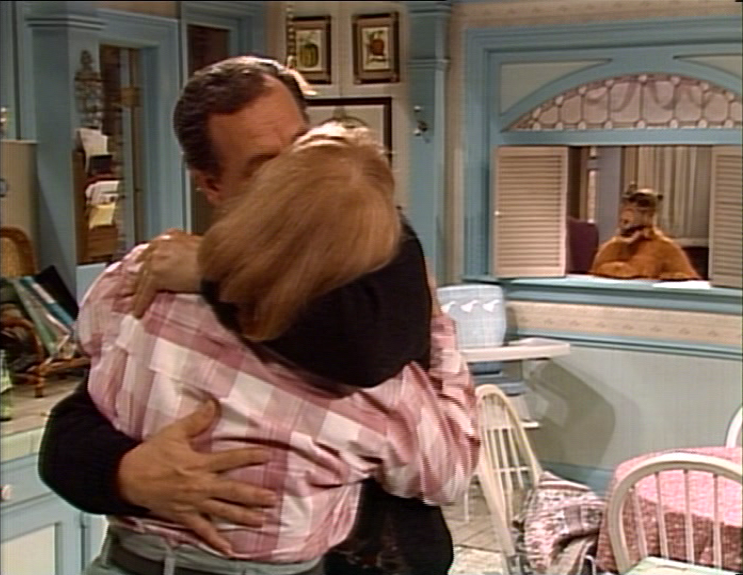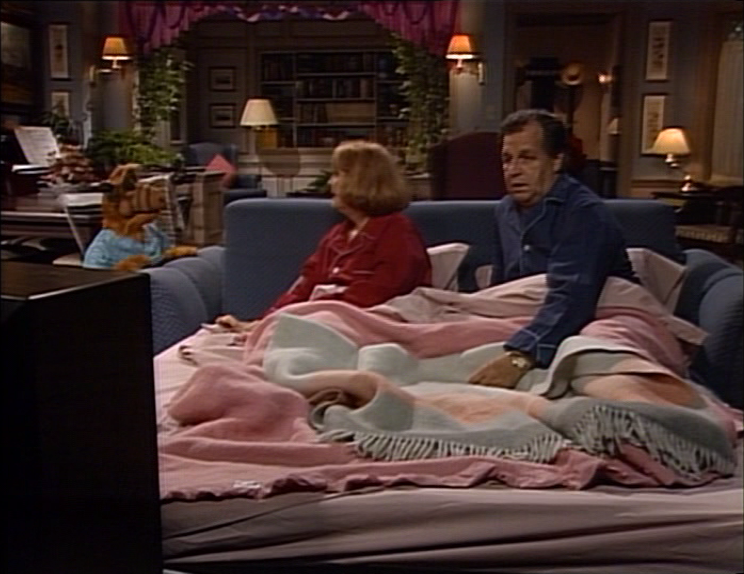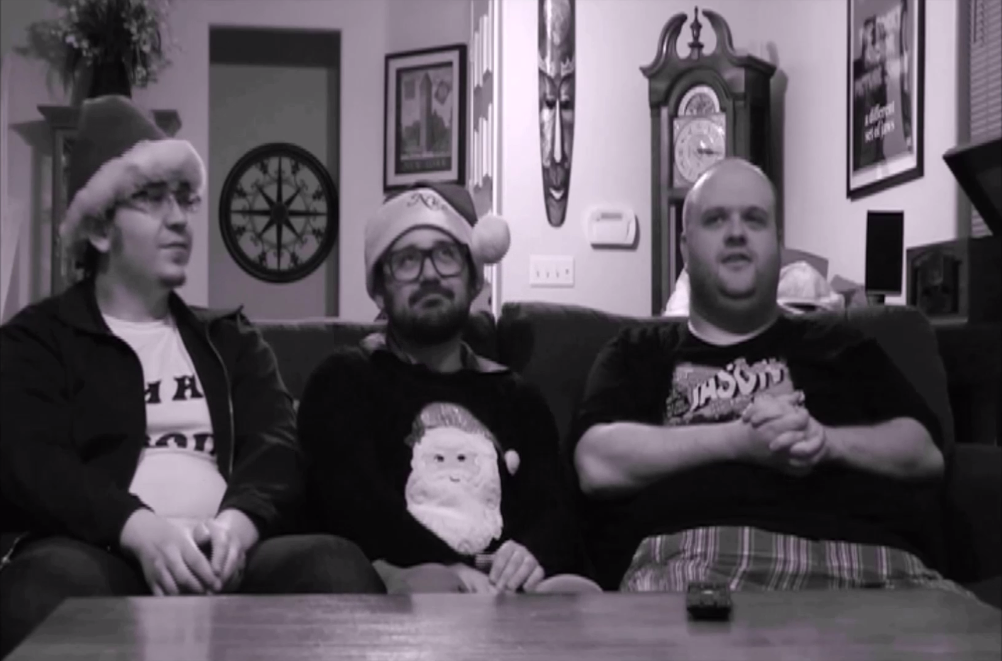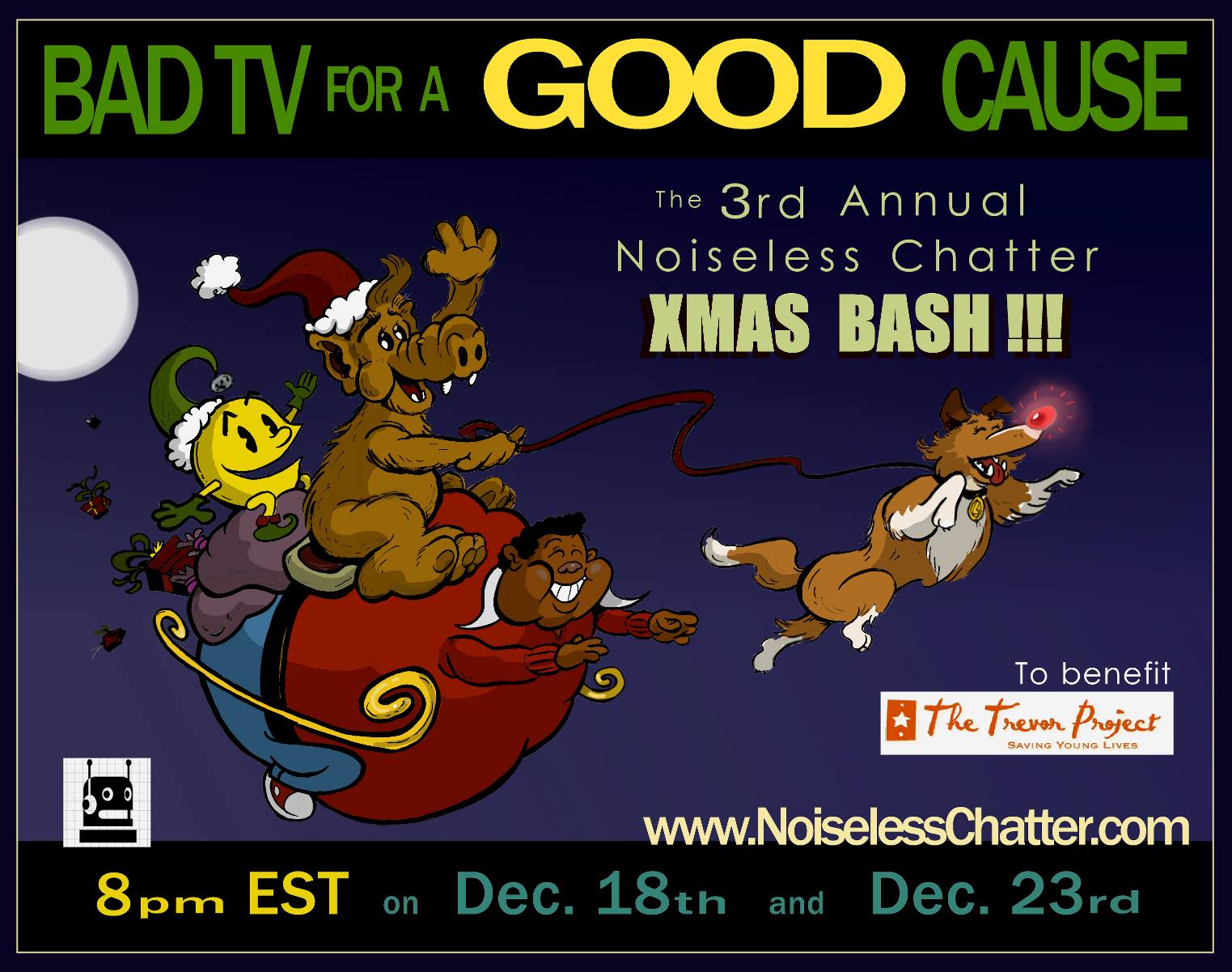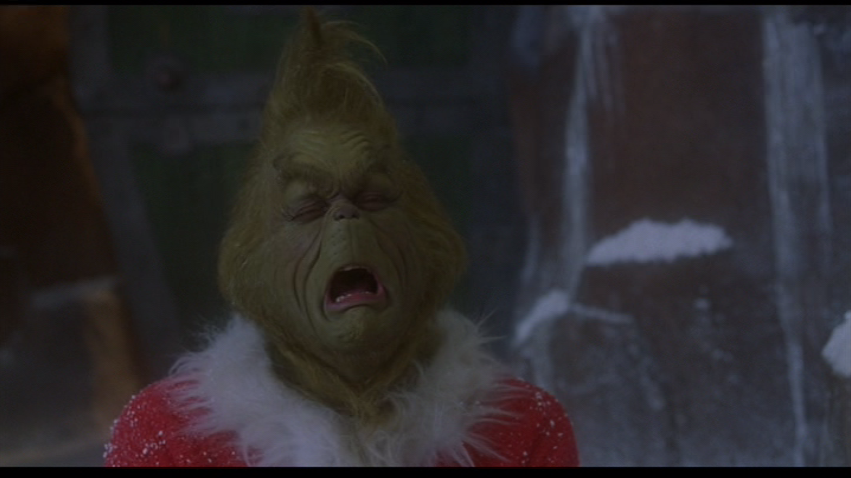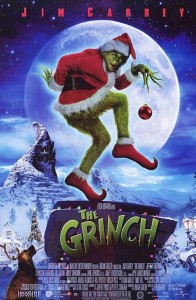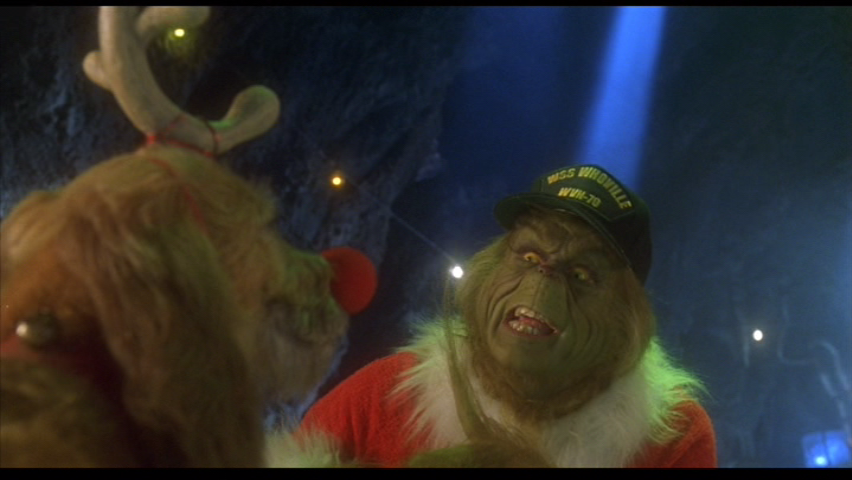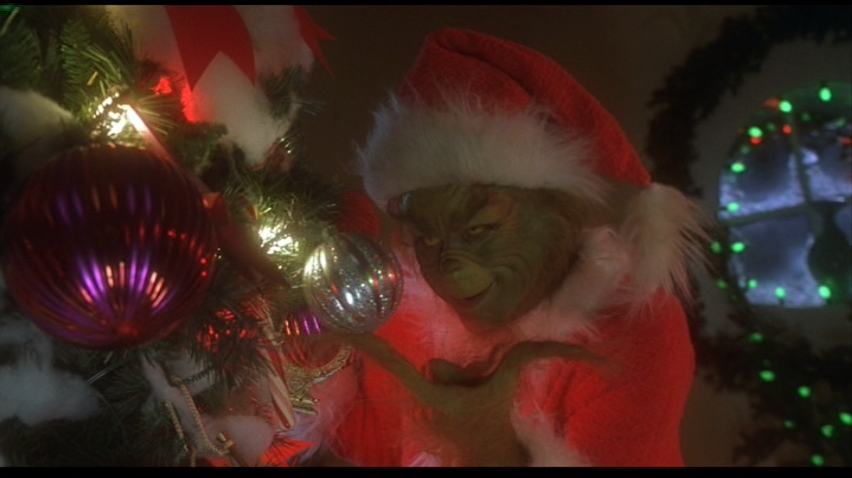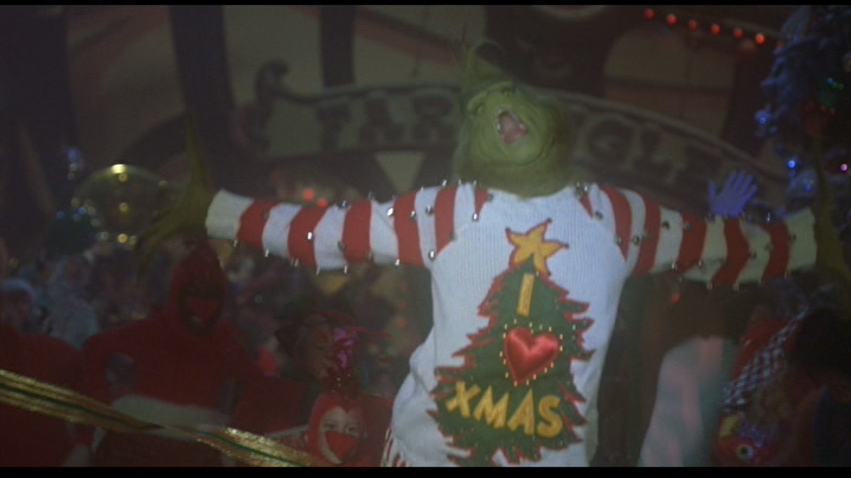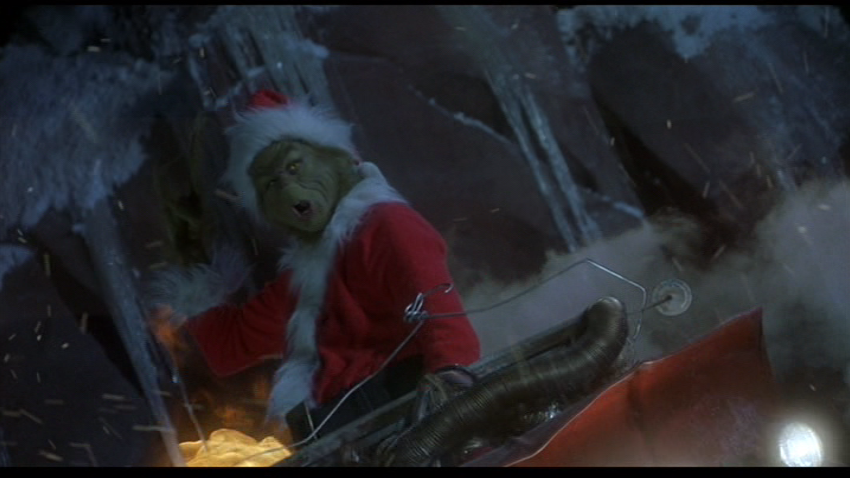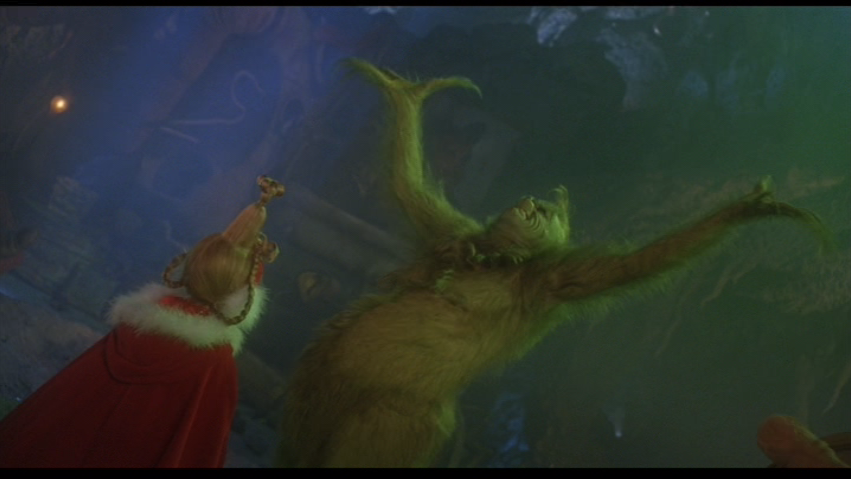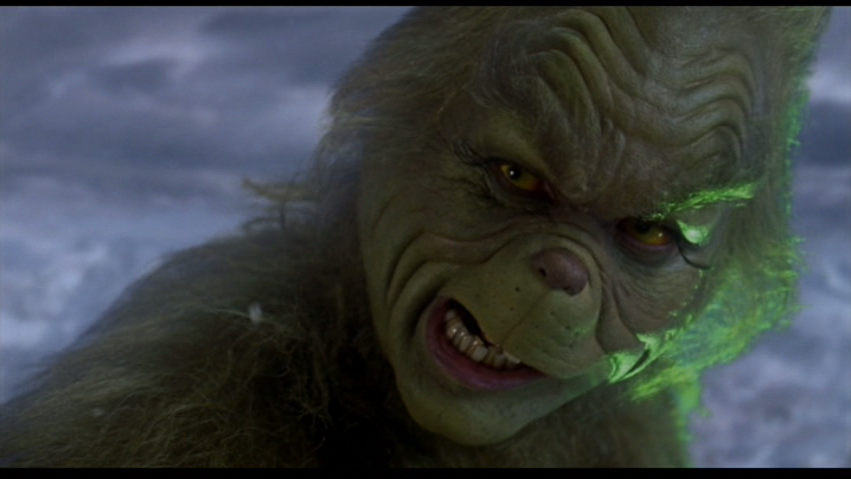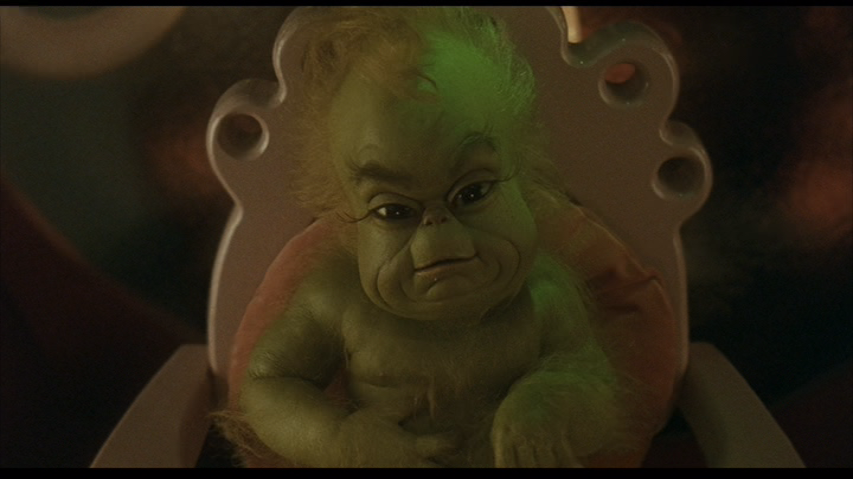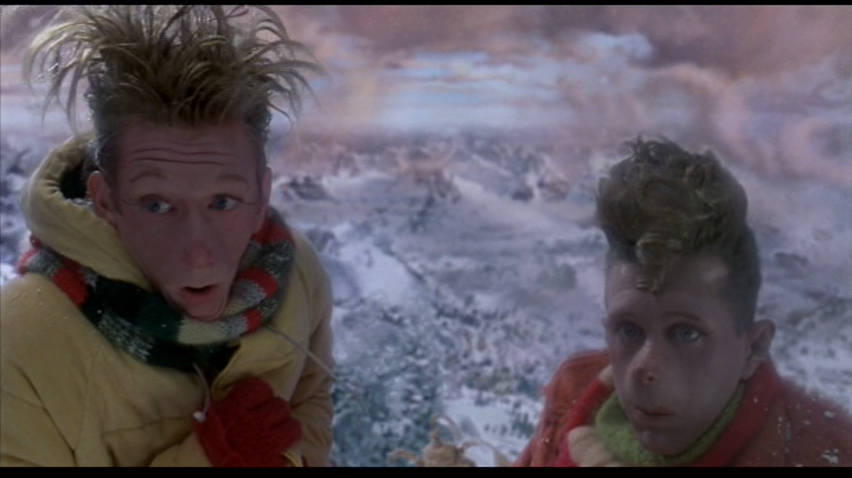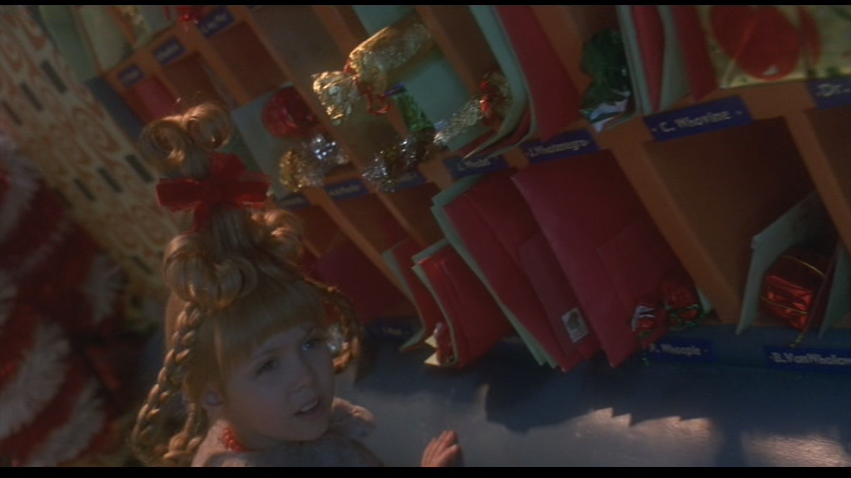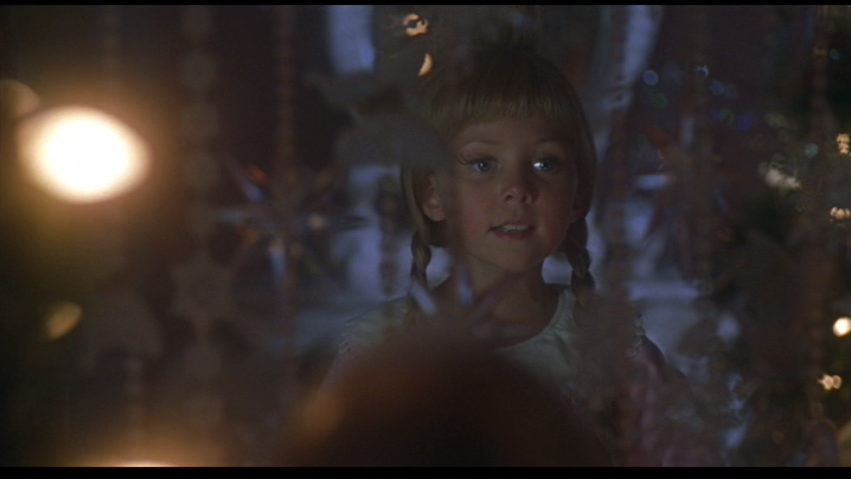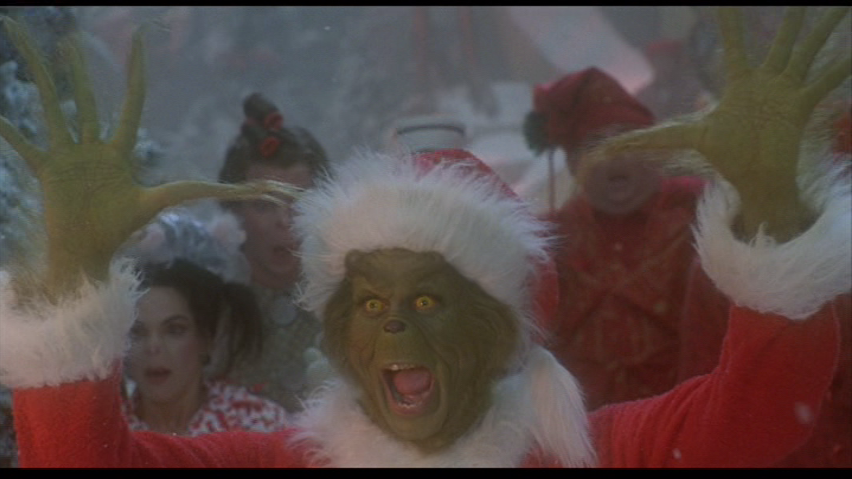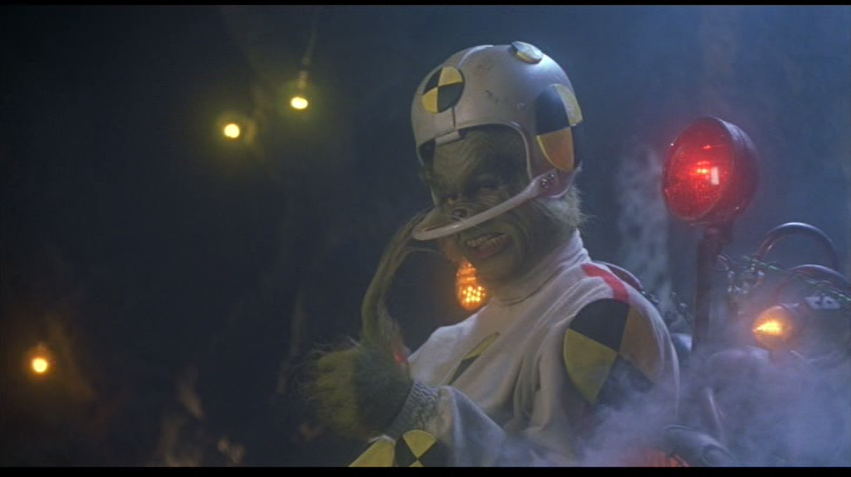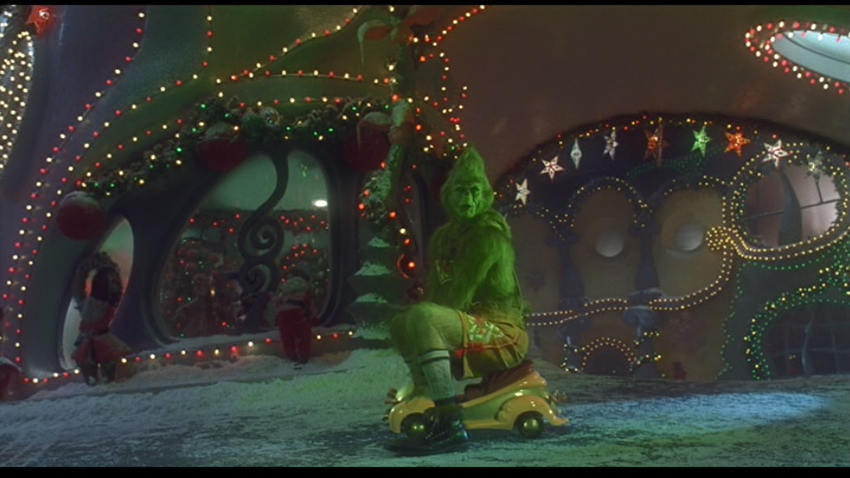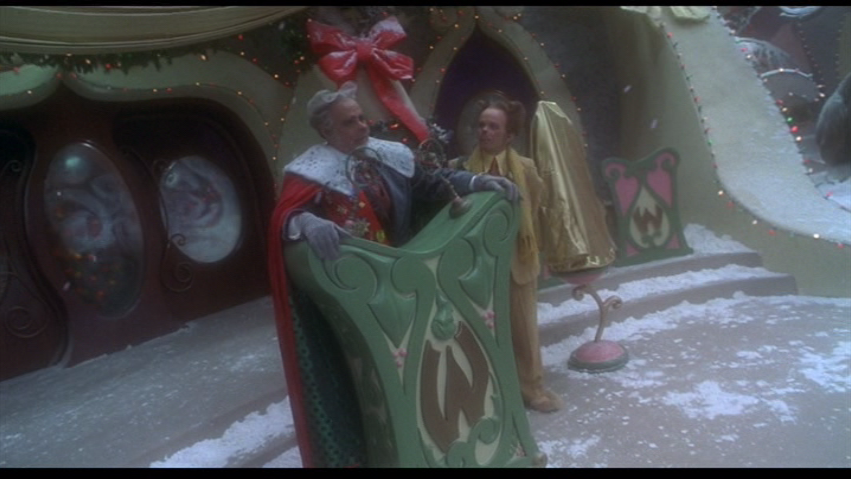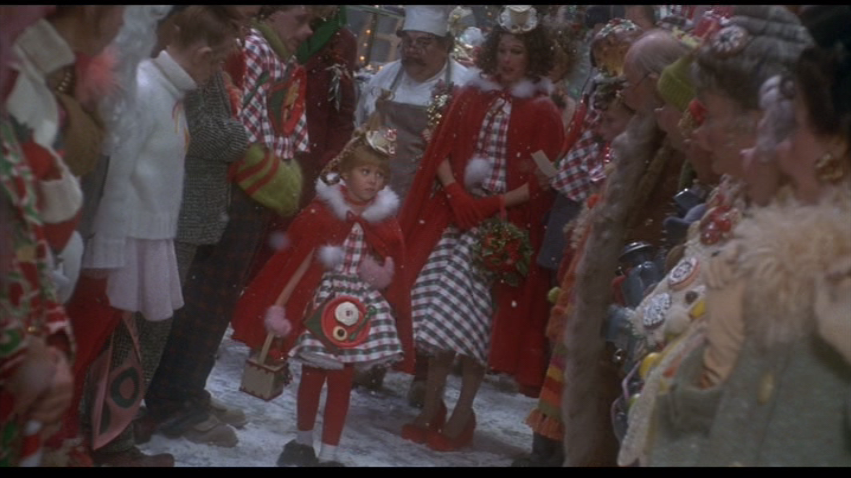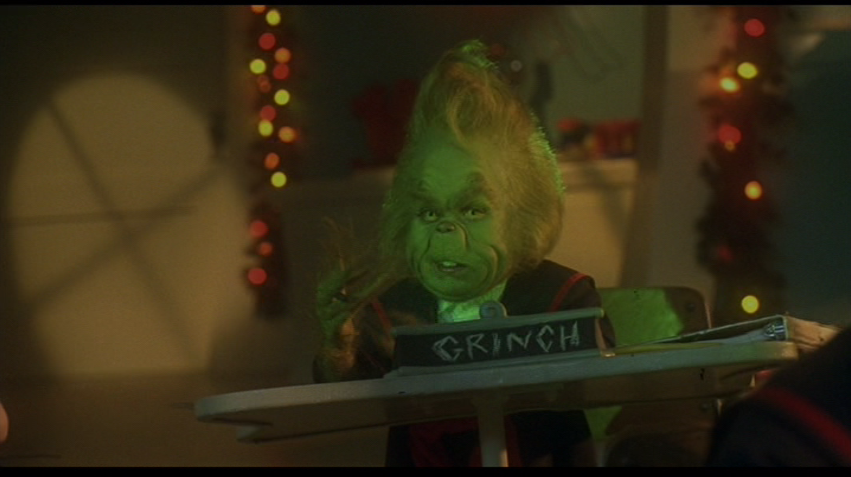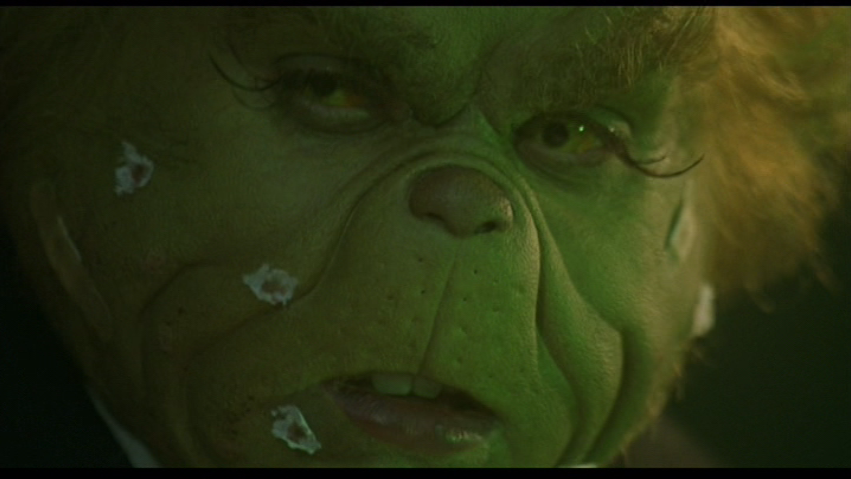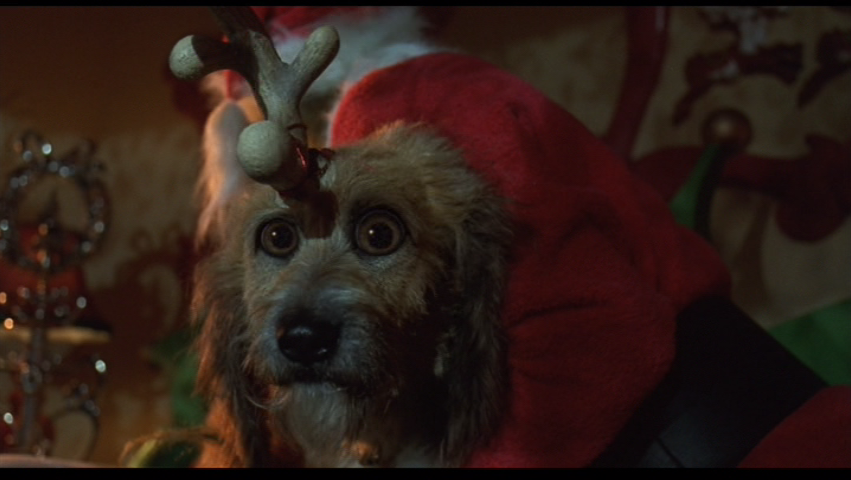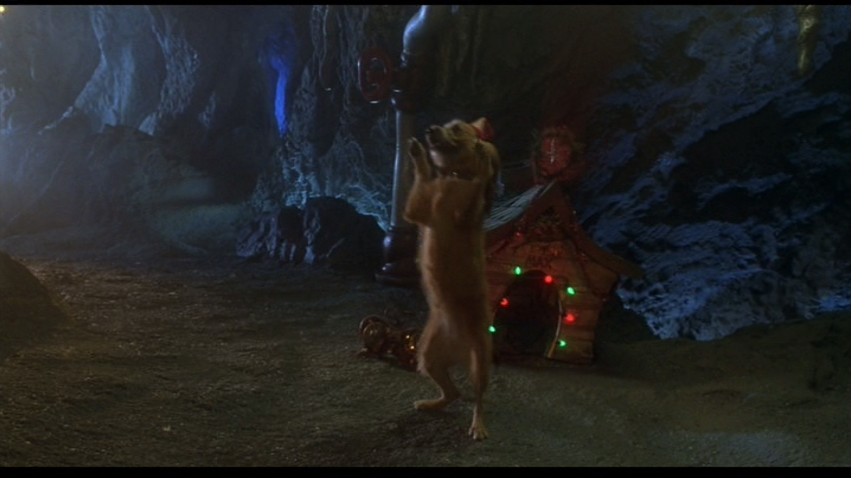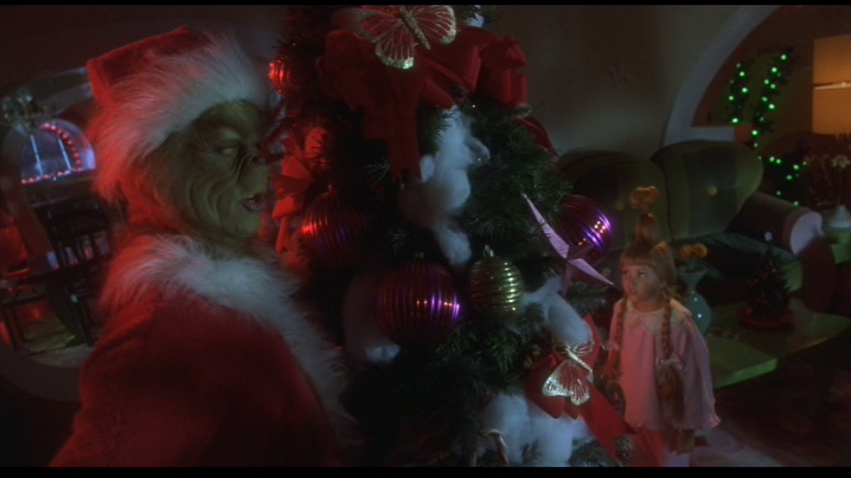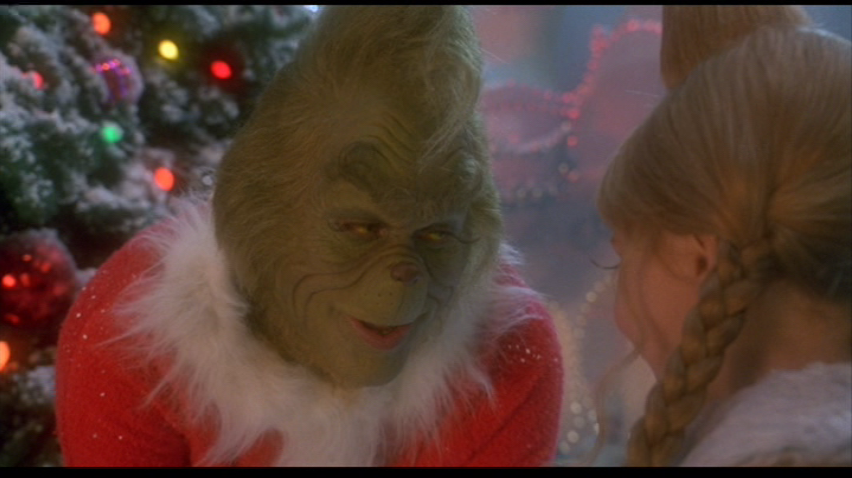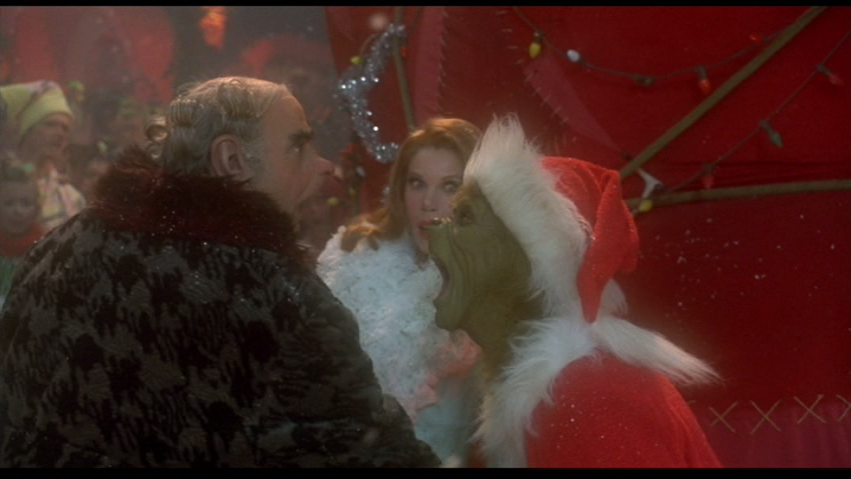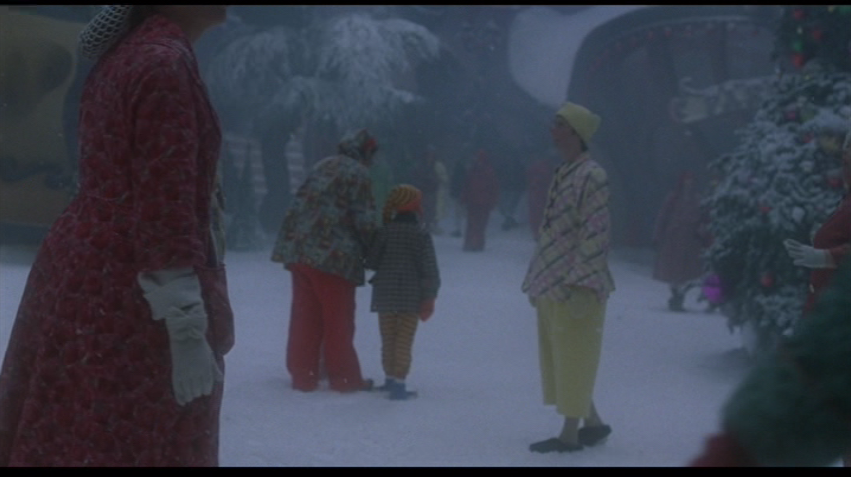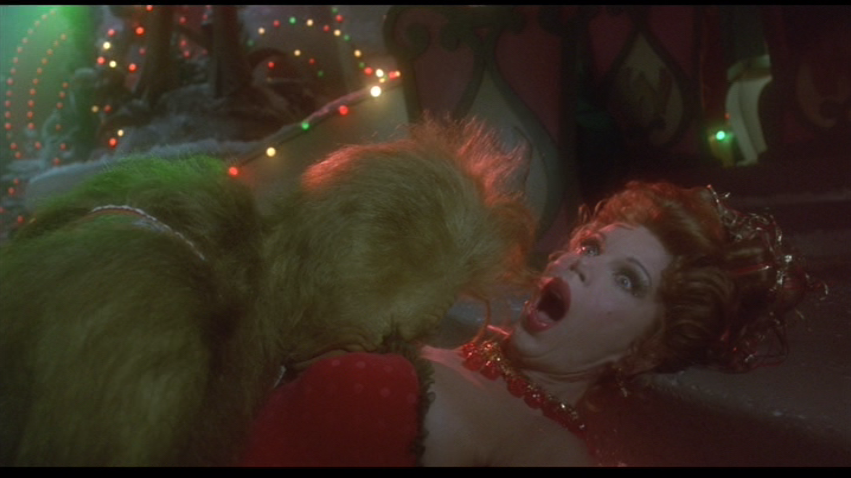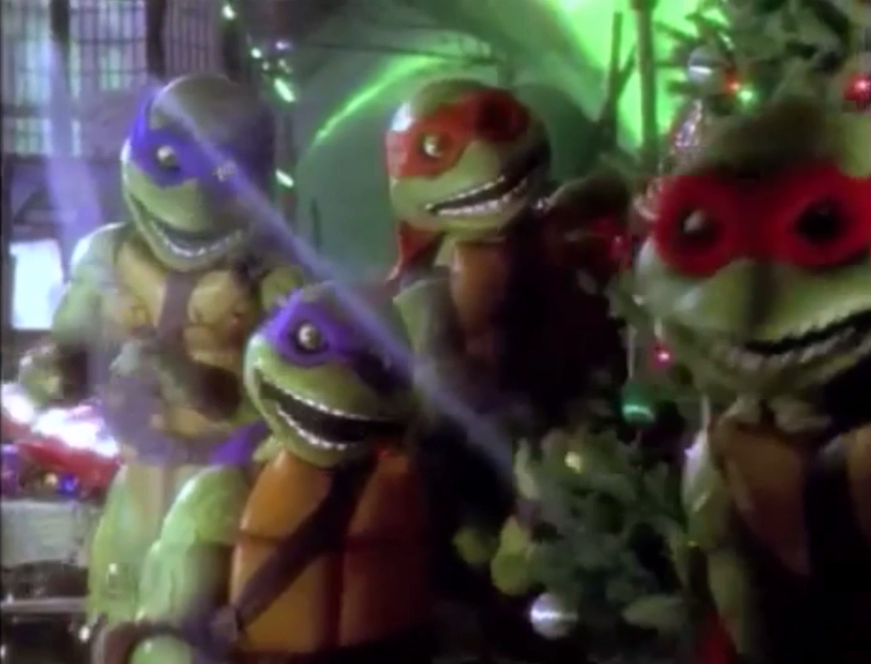Ho ho hoho! Merry Xmas Eve! Thanks for being a good little lady/boy and joining us for the holiest of holiday traditions: making fun of ALF.
For starters, let me thank everyone who made it out to the 3rd Annual Xmas Bash!!! It was a great time, and we raised a lot of money (more than I expected) for The Trevor Project. That’s…humbling, and you have no idea what a great Christmas present that is for me. Seriously. I have no words. And you guys are incredibly funny. Thank you for turning Walker: Texas Ranger into one of my favorite holiday memories, somehow.
Secondly, thanks for understanding last week’s break from the series. The Bash!!! is a lot of work, and I needed to focus my attention there. ALF Reviews are also a lot of work, so the good news is that skipping one week feels to me like skipping about a month, and it does wonders to recharge my spiteful batteries.
Lastly, “Break Up to Make Up” is in no way a festive episode, so…yeah. If you’re reading this on Xmas Eve you’re probably conditioned to expect that it ends with everyone irrelevantly learning the meaning of Christmas, but it’s just a regular ol’ episode of ALF. (Kinda. It’s significant in other ways, but we’ll get to those.)
I do, however, have something holiday-specific to bring up.
See, there’s a bit of debate in the comments sometimes about Willie’s behavior. I’m convinced he’s a terrible human being, a lousy social worker, and a worse husband and father, but some readers say I’m needlessly hard on him, or they’ll make excuses about how draining social work is, suggesting that he might be suffering from empathy overload by the time he gets home from work.
First: fuck that. This asshole has never displayed empathy once, so suspecting that he displays so much of it that it breaks his brain every time the camera’s not on him is, flatly, absurd. You might as well suggest that Brian turns into a werewolf when we’re not looking. There’s no evidence of it, no reason to believe it, and nothing to gain by clinging to the idea. You raise infinitely more inconsistencies than you solve.
But thanks to the holiday season, I’ve made a connection that never occurred to me before. See, I revisited the review of “ALF’s Special Christmas” when another site linked to it, and was reminded of Willie’s story about Mr. Foley. He says that when he was little, his father lost his job, and the entire family was homeless. They had nowhere to go and no money, so Mr. Foley (just one of the suicidal black Santas that have graced the Xmas Bash!!!) took them in. Mr. Foley let the family stay in the cabin until Mr. Tanner got back on his feet.
Willie shares this story with his family, and it’s very clearly framed as an example of a small kindness during a time of need making a massive difference in the lives of others. It’s sweet, and something important to remember around the holidays. (And part of the reason I’m proud we raised such an awesome sum for The Trevor Project.)
Great, right?
Flash forward to “Turkey in the Straw,” when Willie has his own opportunity to help a homeless man around the holidays. Of course, he doesn’t; he arms himself to attack the docile stranger who’s made no threatening gestures or comments. Willie kicks Flaky Pete out of his shed, directly into the rain. And he demands that the homeless man return the clothes he was given, for no reason except that Willie wants them back. What’s more, Willie finds that he has common ground with this guy (an interest in astronomy), and still treats him as sub-human due to his station in life.
These are two situations that I covered in their respective reviews, but now put them together. It doesn’t paint a flattering portrait of Willie Tanner, does it?
It’s conclusive. Willie isn’t suffering from “empathy overload.” He’s a sociopath.
He has first-hand knowledge of homelessness. He knows what it was like to be cold, lost, and alone, with nobody around to help. He knows the pain of hopelessness and desperation. And he knows that his own family never would have recovered without the kindness of Mr. Foley. (That’s sort of the point of his whole story.)
…yet he refuses to demonstrate a similar kindness toward others. Willie isn’t just some guy doing a selfish thing…he is someone whose life was saved by the very kindness he emphatically he now refuses to offer another human being. This is someone who knows exactly what Flaky Pete is going through, and still decides to tell the guy to fuck off.
Even better? The kindness Flaky Pete needs is orders of magnitude smaller than what Mr. Foley gave to Willie’s family; all he’s asking is to hang out in the shed for a few hours until the rain stops…oh, and to keep some old clothes that were left in a pile for him. That’s nothing compared to sheltering an entire family, rent-free, until they figure out what to do with themselves.
Willie is not a good person. Period. The show, for all of its faults, created a good person: Mr. Foley. We know what empathy looks like in the universe of ALF, and it doesn’t resemble Willie Tanner in any way.
In fact, now that we have a clear image of what a “good person” is on this show, we can easily identify what a hypothetical villain would look like.
So, hey, as a thought exercise, let’s imagine the anti-Mr. Foley, and how this awful, theoretical monster would have handled Willie’s homeless family.
For starters, he would have turned them away around the holidays, rather than welcome them in. He would have insulted them rather than offered them help. He’d even begrudge them the clothes and food they found in his trash, and make them give it back before kicking them out into the elements, not caring even a little about where they’d go, or what would become of them.
…which is, word for word, Willie’s actual behavior with Flaky Pete.
Funny how that works out.
So, yeah. I…wanted to share that. Not only do I think Willie’s a shitlord, but the show’s internal logic — so far as it can be said to have one — definitively characterizes him as a shitlord. Sure, it tells us he’s great, but that’s kind of like someone telling you what a nice guy their brother is while he’s actively sodomizing you with a shrimp fork.
Everyone’s a nice guy in their own words. That’s why you always need to look at their behavior. Do that with Willie, and then come back and tell me what a great guy he is.
I’d apologize for beating a dead horse, but come on. This is the 86th episode of ALF I’m reviewing. Beating dead horses is all I fuckin’ do.
Anyway, at some point I guess I need to talk about this episode, so let’s get that over with.
We open with the Tanners decorating for ALF’s three year anniversary of landing on Earth, “landing” being pretty loosely defined in this show. Like “comedy,” I guess.
So once again we have something to orient us in the ALF timeline; one year for us isn’t necessarily one year for them, as we’re well into the show’s fourth year at this point. I don’t mind; I just find it interesting. And I wonder why they bothered to make it only three years for the characters, since I don’t think they do anything with that. Breaking Bad famously condensed its run so that nearly every episode took place within one year of the pilot, but that was to demonstrate just how quickly — and easily — a seemingly ordinary man can lose his entire moral compass.
Here…I don’t know. Maybe four years and change would be too long for ALF to keep misunderstanding things on Earth, but I don’t know if that’s the reason they’re treating it like he’s only been there for three.
After all, three years isn’t much better. If we were still within ALF’s first year on Earth, that would make a difference. By now, though, he really should have a better grasp on things, whether he’s three or four years into his permanent vacation. Another 12 months would make a kind of difference — he’ll never learn everything, after all — but the basic stuff that he misunderstands on a weekly basis should really be behind him by now.
For instance, in this very episode he’s confused about his own party, which is kind of bullshit, since three years on Earth is more than enough time for him to realize that he shouldn’t be ordered dancing poodles for himself with Willie’s credit card. (This isn’t just a shitty sitcom, though…this is ALF, so we cap it off with some good ol’ comedy racism as he explains that they’re good dancers, “for white dogs.”)
Oh, and, also, ALF wiped his ass on the crepe paper Kate is hanging from the ceiling. I shit (ahem) you not.
So, yeah, he’s still misunderstanding basic concepts. (“Don’t wipe your ass on everything” being probably the single most basic concept in all of humanity.) Three years doesn’t make this behvaior any more excusable than four years would, so I have no idea why the show’s timeline differs from our own. Any hypotheses from the Peanut Gallery will be appreciated.
Brian comes over to show ALF the model he made for the party, asking the alien if it looks like his spaceship.
How brain damaged is this kid? He knows what the space ship looks like; he doesn’t need to ask ALF.
I mean, okay, maybe if someone saw a UFO streak through the air, three years later they’d be a bit fuzzy on the details. (Not least because they’d be fucking lying, but I digress.) In this case, though, it wasn’t a fleeting glimpse; it crashed into the garage that Brian was standing in. It stayed on that garage for about a year. Since then Brian’s been present as the ship’s been stripped for parts, reassembled, loaned out to film crews, and plumbed for ALF’s personal effects god knows how many times. And he doesn’t know what it looked like? Eat my ass.
ALF tells Brian that he forgot about the “My other spaceship is a Porsche” bumper sticker, and that the model as a whole is “a pretty feeble attempt.”
Man, fuck this guy. Can’t he just be grateful for someone’s effort rather than having to constantly criticize and wipe his ass on things?
During this year’s Xmas Bash!!! longtime reader Ryan pointed something out. We screened the “A Mid-Goomer Night’s Dream” episode of ALF: The Animated Series, and he observed that ALF was sure going through a lot of trouble to help his family out around the holidays…which makes this constant “fuck you” behavior to the Tanners even more troublesome. He’s not a naturally selfish little prick; he just treats his adopted family like fucking garbage.
Merry Xmas!!!
Anyway, we find out that Neal is on his way over, and then Kate Sr. calls and announces that she split up with Wizard Beaver.
Oh noes! Some people we haven’t seen in over a year are no longer together, in spite of the fact that their union was built on the sturdiest possible foundation: a family of busybodies pressuring them to fuck.
While they wait for Kate to go pick her up, the family plays Pictionary. ALF guesses “bird watch,” which is…not a bad guess at all, but he’s wrong. Willie rolls his eyes because he knows that whenever Lynn plays this game she tries to convey a “time to sink your birdie” message.
From the tickmarks above the easel we see that Lynn and ALF are doing significantly worse than Willie and Brian, and also that the game has been going on for a very long time. That’s some nice, passive storytelling. But I wonder where Neal is; Willie said he was just picking up some wine on the way, but evidently he’s taken long enough to miss 96 rounds of Pictionary, including this one. (Yes, I counted.)
It is nice that the teams are listed as LYNN / ALF and BRIAN / DAD. I wouldn’t have thought twice if it said BRIAN / WILLIE, but I like that someone on the production staff realized that a kid is much more likely to write DAD than their father’s real name.
The attention to detail with the score ends there, though, as nobody adds a tick for Willie’s team when ALF fails to guess Lynn’s clue. (The answer was “three o’cock.”) Maybe I’m misremembering the rules and a team only scores on their own turn…but then we’d be way more than 96 rounds into this game, and someone really should be wondering if Neal is in a ditch somewhere, impaled on his steering column.
Then — an Xmas miracle! — I really like something.
Willie gets up for his turn, and after a few seconds of sketching, Brian works out that it’s “All Quiet on the Western Front.” And the way the kid gradually puts it together, combined with the excitement and satisfaction he shares with his father when he gets it right…it actually feels real. And it’s kind of sweet. Maybe Benji Gregory deeply enjoys Pictionary, or something, because it’s the best acting he’s ever displayed on this show.
Then there’s a knock at the door and…mother of fuck! It’s Jim J. Bullo–
–NO
NO NO
FUCK NO
Fuck Christmas. Fuck Christmas, and fuck you.
Ah god motherfucking dammit.
Of course the show had to get my hopes up with a sweet scene between two characters I usually hate so that Jim J. Bullock in a toga could have its maximum toxic impact.
Jesus fuckballs.
Anyway, ALF told him to wear that, apparently, and then the alien tries to use it as an excuse to get Lynn to change into a toga, too. Everyone takes this sexually aggressive behavior against their daughter / niece / sister in humorous stride. Ha ha! Three years to the day since he first tried to rape Lynn, and he’s still at it! We do have fun as a family, don’t we?
At the airport Kate Sr. bitches about her lost luggage. She really should have known better than to fly with these guys, though, since their terminal is located in somebody’s garden shed.
So, Kate Sr. This is the first time we’ve seen her since her wedding in “Something’s Wrong With Me,” way back at the beginning of season two. I won’t say that it’s especially nice to have her back, but I do support giving this character a proper send-off in the show’s final stretch. Remember, though the cliffhanger at the end of “Consider Me Gone” was unintentionally morbid, they did intend to do away with the Tanners for season five, so bringing Anne Meara back to say goodbye was likely deliberate. And I like that impulse.
In fact, Meara actually wrote this one. So…there’s…that.
Since we last saw her in these reviews, Anne Meara passed away. For that reason alone I wish I could tip my hat to her performance here and say it was better than the show deserved (as I was absolutely able to do with Marcia Wallace), but…yeah, there’s no sugarcoating it. It kind of sucks balls.
She had talent that she displayed elsewhere (and which I wrote about elsewhere, so I won’t bore you with it again), but I’d be lying if I said she enhanced the ALF experience in any way.
And, seriously, what the fuck kind of set design is this? I figured the counter was supposed to be in the middle of the airport or something. It looked cheesy, so, y’know, tee hee, but now we see it’s actually in a tiny little room within the airport…and it’s the fucking baggage claim.
This is…preposterous. Who built this set? Have they never seen an airport before? Anyone who stuck a baggage claim in fucking room would have to be insane. Do you know how busy that room would be? How many people would be crushed and trampled? How impossible it’d be to get out through a crowd with all of your shit? The fact that that doesn’t happen here is evidence that Kate Sr. was the only one who bought a ticket for the flight. No wonder this airline needs to operate out of a shed.
There’s a decently funny moment when Kate asks how she’s doing, and Kate Sr. starts talking about how awful the flight was. But then they do discuss the separation, and Kate Sr. complains about how Wizard Beaver loves his saxophone more than her, or something. Which is bullshit, because we true fans who hate this show know full well that Wizard Beaver plays the clarinet. It’s easy to remember because it’s the only thing we ever learned about him.
Anyway, we get a big exposition dump about how they moved to St. Louis together and she wanted him to give up jazz, but then he didn’t, and holy shit I could not care less about this. Maybe if the guy had done more than be introduced and immediately marry this sour old bag I’d be more invested in their relationship, but as it stands I just want her to shut up. It’s very similar to how it is in real life when you run into somebody you haven’t seen in years, and they fill you in on updates to all the things you never cared about to begin with, and you just keep nodding and tune out and eventually pretend to have an uncontrollable diarrhea attack so you can leave.
Back at der Tannerhaus I see Willie at the piano and immediately assume we’re in for our Worst Musical Moment, but it’s actually okay. They’re killing time by trying to guess which television theme song Willie’s playing on the piano, and I’ll give them credit for this. It’s not funny (at all) but it’s the kind of thing I can imagine a family doing together, especially if one of them plays an instrument and another of them does nothing but spank off to Nick at Nite. It’s a well chosen activity for this show, and for these characters.
ALF keeps guessing the right show before anyone else, and it’s…kind of fun. The only one of them I identified in time was Green Acres, so even though I spent most of my life as a couch potato, I can rest assured that I was never as bad or obsessive as ALF.
I have to repeat one of my own questions from the Xmas Bash!!! here: why was every woman in the 80s 44 years old?
Also, what the jesusing hell is that lapel pin? Is it someone performing a slam dunk? That fucking thing is huge. She might as well be wearing a dinner plate. I can’t decide it I want to rip it off her and throw it in the trash, or pin it on myself and strut proudly down the street.
Then someone comes to the door and ALF hides in the kitchen.
It’s Wizard Beaver! Hooray! One of only two characters who hasn’t met ALF is going to meet ALF. Man, you just can’t keep a good writing staff down, can you? Remember back when it used to matter who knew and who didn’t know ALF? That lasted for a whole episode, I think.
So, yeah, the Beav is about to meet him. That leaves, unless I’m forgetting something, Mr. Ochmonek as the only recurring character who hasn’t seen the space alien. (APART FROM JODIE HAR HAR)
Right? It seems absurd that that’d be the case, but I can’t think of anyone else who’s been in more than one episode that hasn’t chilled out max and relaxed all cool with ALF. I mean…we can’t even count the Alien Task Force or the FBI, because we haven’t seen any of those fuckers twice. Is Mr. O really the only one who hasn’t seen him? On a show whose central premise is that ALF must be kept a secret at all times, forever, from every one?
Guys, ALF is a piece of garbage.
Wizard Beaver finds out Kate Sr. is on the way, and he says that he must have just missed her at the airport, which I’d buy except for the facts that a) he has baggage with him, b) his wife was at the baggage claim, and c) the baggage claim is the size of a toilet cubicle. You didn’t “just miss” anybody, Wiz. You just live in a very poorly written show.
Anyway he bitches about his wife for a while, because that’s how people communicate on ALF, as though the English language is just an endless flow of petty complaints. At one point he vents to Neal, who puts a hand on his shoulder, and nobody seems to realize that these two assholes have never met before.
ALF IS A PIECE OF GARBAGE
Whizzer says he needs a beer and goes into the kitchen, and Max Wright tries to get paid for acting without actually doing any of it:
Then there’s a scream, ALF pretends to be a dog, and that’s that.
Well, “Break Up to Make Up” certainly isn’t beating around the bush. So far removed from the Majestic Grand Reveals of other episodes, this one just has the guy walk into another room and see a naked alien staring back at him.
Which I…like. A lot. Not least because this should have happened ten thousand times before given how careless the Tanners are, and nine thousand of those times should have involved Mr. Ochmonek, whose brash, unannounced entrances lend themselves naturally to this.
What I don’t like is that the entire thing happens off camera, so we don’t actually get to experience it. It’s not “Here’s how Whizzer meets ALF.” It’s “Whizzer met ALF when you weren’t looking. Anyway, back to Kate Sr. complaining about the airport.”
Yeah, whatever personal revelations / cosmic reconciliations Wizard Beaver has to make, he makes them while we’re watching commercials for Jazzercise videos and Rubik’s Cubes. It’s like a few weeks ago when Jim J. Bullock was pressing ALF for information about his home planet, and the writers decided they’d rather go home early. So many opportunities for these episodes to do interesting things…so much complete disinterest.
It’s amazing that season four is setting new standards for laziness in this show’s writing. I didn’t think it was possible, but here we are.
By the time we rejoin the story, dude’s just yakkin’ it up with the space alien. Guys, I had a homeless lady yell something at me that I couldn’t even understand and I was shaken up for a month. This guy finds a creature from beyond the stars squatting on the kitchen floor and asks how its day was.
Laziness aside — I must put it aside if we’re ever going to finish this episode — I do like that the writers at least tacitly admit that their show has bungled every ounce of its promise.
They have Whizzer ask ALF if he can “levitate, or cure people by touching them.” And, nope, ALF can’t. Then he asks ALF what he’s done since he’s been on Earth, and ALF is at a loss. Willie helps him out by suggesting that he eats a lot.
And, yeah, the show is in on the joke here; I’m aware of that. But the fact that it can make this joke speaks volumes about how little the writers have done over the course of the previous three seasons.
Other shows about aliens went beyond their premise, including the truly lousy ones, which is why it’s so frustrating that ALF thinks that its main character being an alien is enough.
What can he do? What does he accomplish?
Doesn’t matter. He’s an alien. That’s plenty.
…which it clearly is not. ALF has nodded toward Mork & Mindy before, so we only have to look there to see that Mork formed a deep relationship with someone he met on Earth, eventually marrying her. ALF, by contrast, makes Jodie wet and walks out of her life forever to get back to masturbating into Willie’s socks.
3rd Rock from the Sun featured a crew of aliens posing as a family in order to research life on Earth. This meant that every episode, no matter what it was about, tied into that larger mission as they were always learning something. ALF, by contrast, still wipes his ass with party streamers.
Out of This World was probably garbage (though — all together now — I watched the hell out of it as a kid), but its main alien character, a seemingly ordinary teenage girl, could freeze time and perform other alien-specific feats that made the show feel unique. By contrast, ALF fingers the kids.
You really start to understand how mishandled this show is been when you compare it to…almost anything else, ever. And now, as it winds down for good, the writers might be realizing that they’ve wasted literally all of their time here. It must be a bit like getting to the end of your life and realizing you’ve spent so much of it complaining about waitresses.
Then there is a moment that got a chuckle out of me. Wizard Beaver says, “First my wife leaves me, then I meet an alien. How many people can say that?”
It’s clunky as all fuck, but it leads to this:
And alright, show. Ya got me. I liked it. There’s something about the obviousness of the punchline that actually makes it work for me.
Then Kate and her mother are driving back from the airport, and the old bag bitches some more about the airport losing her old bag. Man, I hope she never stops complaining. Did Anne Meara really write this, or did someone just adapt her angry letters to Spirit Airlines?
Kate turns the conversation back to the woman’s failing marriage. Kate points out that Whizzer’s been playing jazz for over 40 years, and he’s known Kate Sr. for “less than two.” Her point is that they haven’t had enough time as a couple to figure out how to balance hobbies with their obligations to the relationship, which is a good point. And, hey, maybe Kate shouldn’t have been pressuring them to get together in the first place, and instead let them sort this shit out like humans do.
Then there’s some stupid joke about how Whizzer and Kate Sr. met when he was buying her a drink at a jazz club, but, again, we know that didn’t happen; they met when Kate Sr. was moving into her new apartment, which was in the same building as his. Boy, I really hope somebody got fired for that blunder.
Then there’s a poker game that goes on for three full minutes.
As a reminder, the episode is about 20 minutes long, once you subtract commercials and credit sequences. Three minutes is one hell of a lot of real estate. And while I’d be perfectly happy with three minutes of good comedy or something, instead it’s ALF playing poker with Max Wright, Wizard Beaver, and Jim J. Bullock, and I can’t imagine any less promising a setup than that.
There’s also this really stupid moment when ALF looks at Willie’s cards and gets yelled at, then he blames Willie for putting the cards right in his face.
…but it doesn’t work as a joke, due to the logistics of the scene.
Willie really does have to lean close to ALF in order for the alien to peek at them, as you’ll see in the screengrab. He needs to put them unnaturally close because the puppet is so short, so ALF’s comment about Willie putting them right in his face — which is supposed to be funny because he’s making it up — plays really bizarrely.
The joke is meant to be ALF putting the blame for his own misbehavior on someone else…but it turns out to actually be that person’s fault, due to blocking limitations on this shitty sitcom. The screengrab doesn’t do the awkwardness justice; Max Wright actually has to adjust and then re-adjust his cards to get them into ALF’s sight line.
It’s probably the most effort they’ve ever invested in making a joke, and they broke it.
Literally everything goes wrong with this show. Was it filmed on the set of a failed sitcom about an Indian burial ground?
Kate and her mother get back from the airport, and there’s some a big waste of another few minutes as ALF repeatedly calls her an ugly bitch. Then Neal tries to talk about his dissolved marriage, and ALF interrupts. Finally, Kate suggests privacy for her mother and Whizzer, but accidentally says ALF’s name instead of Whizzer’s.
It’s…weird. Like the show is just jamming ALF down our throats now for the sake of doing it. Maybe they were contracted to say ALF’s name another 500 times before the season ended, and tried to get it all out of the way with this episode.
At some point I expected the ALF’s-anniversary-party and the dissolving-marriage plotlines to dovetail, but they never do. They’re just two things that irrelevantly happen in the same episode. Even though characters from both plots end up on the same set, we just go from talking about one to talking about the other, and never go back again. There’s no connection whatsoever.
ALF isn’t jealous that they’ve taken over his celebration. Kate Sr. and her beaving husband don’t reconnect over shitty party games. They’re just two scripts stapled together, and fuck you for expecting anything more.
Anyway, ALF runs out of standup material, so Kate Sr. and Wizard Beaver say they love each other. As all human beings know, that means the relationship is saved, and whatever serious problems there were are gone forever.
Actually, they both agree to give up something. In Wizard Beaver’s case, he says he’ll find a steady job. In Kate Sr.’s case she agrees to move far away from LA and never see her family again. There’s some kind of imbalance here but I can’t put my finger on it.
Also, I was just kidding; ALF didn’t run out of standup material.
He pops up to observe repeatedly that it’s gross when old people kiss, even though nobody’s making him watch them do it.
In the short scene before the credits, ALF watches them fuck.
Man…this one was the pits. Again, I do want to emphasize that it’s nice that these characters get some kind of in-universe sendoff (something many other characters don’t get; chief among them Jake and Jodie), but that’s about as nice as I can be this week.
On the bright side, the final Kate Sr. episode is so shitty it guarantees that nobody in the audience will miss her.
God bless us, every one!
Countdown to ALF being crucified in front of the Tanners: 14 episodes
